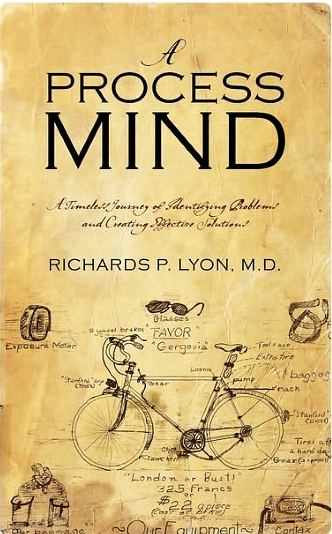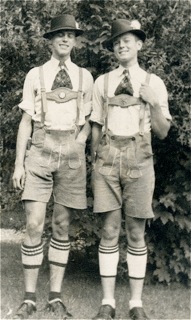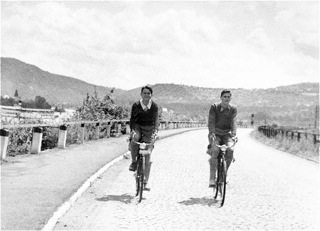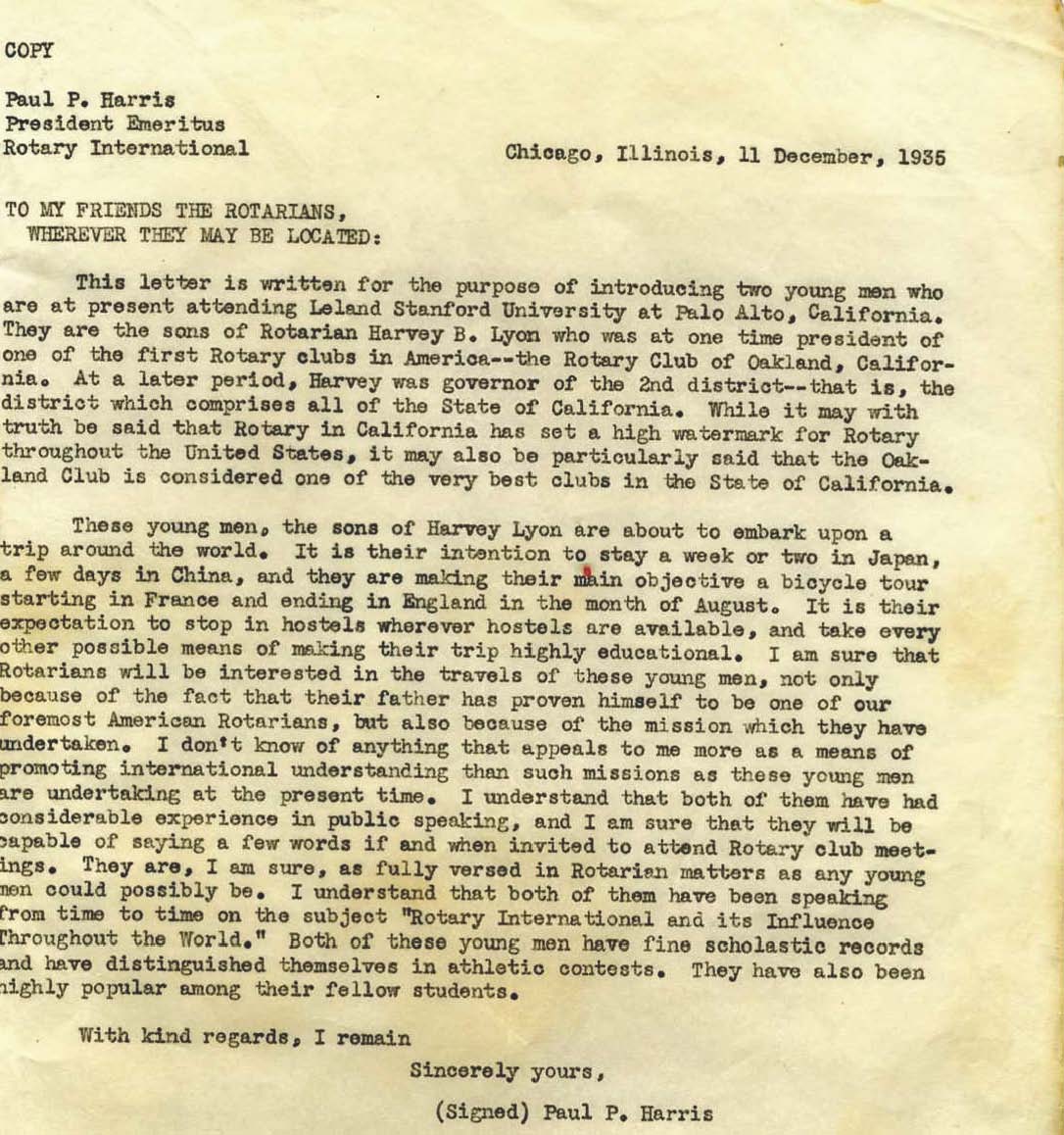Historians who continue this project
 A
few weeks ago, Brenda Speth, my boss and publisher of the Napa Valley
Register, handed me a book titled “A Process Mind,”
written by a Napan, a retired surgeon named Richards P. Lyon, M.D.
It quickly became a book I could not put down.
A
few weeks ago, Brenda Speth, my boss and publisher of the Napa Valley
Register, handed me a book titled “A Process Mind,”
written by a Napan, a retired surgeon named Richards P. Lyon, M.D.
It quickly became a book I could not put down.
The author
explains the title of the book up front: “I must understand to remember.
This takes more time than is required by Quick Memory minds. However, it
is the remembering that makes the difference and allows me to tell the
story today in the hope that I will be effective.”
And
effective is always the bottom line.
The story,
which spans almost 100 years in 20th-century America, is a wholesome
story of a typical American family: mom, dad and three boys, Richards,
Ted and Bruce. The Piedmont family is wealthy for just a little while.
His father owned the Lyon Storage and Moving Company, the first of its
kind west of the Rockies.
The author
remembers the Great Depression of 1929 well. It changed everything on
the surface, but the basics of a family’s will to survive remained solid
and never wavered.
The author
also remembers the day nine years later, when his father, who had seen
his fortune disappear, proudly announced to Dick: “Your dad does doesn’t
owe a single cent to anyone!”
That was in
1938, and to this very day Dick’s eyes tear with the thought of that
precious moment.
Education
was a must in the Lyon family, and somehow, with dad’s help plus odd
jobs like slinging hash, Dick went to Stanford University. A tall boy
and an athlete, he became a teammate of Hank Luisetti, a basketball
legend who would revolutionize the game.
In 1938,
there would be an interruption in Dick’s Stanford life that would take
him and his brother Ted on a worldwide trip for eight months.
 That spring
his grandmother Richards died of kidney failure. Dick and Ted were each
to receive $800, a hefty sum in those days, but it could only be spent
for riding bicycles all over Europe.
That spring
his grandmother Richards died of kidney failure. Dick and Ted were each
to receive $800, a hefty sum in those days, but it could only be spent
for riding bicycles all over Europe.
Quite a
bounty and quite a trip, to say the least.
Dad and mom,
faced with a commitment for their two boys, decided that the $1,600
could be stretched. Dad found help from Paul Harris,
(see letter below) founder of the
Rotary, then established in 57 countries. The boys were made Rotary
Ambassadors of Goodwill, and the tour was expanded to include Japan,
China and the Philippines, after which they traveled by ship to
Marseilles, France.
 In Europe,
the boys purchased French light racing bicycles for $22 apiece, and off
they went on a 3,000-mile journey fulfilling grandma’s wish. And what
wonders they saw in 1936 Europe: France and the Riviera, Paris and
Holland, south to Italy and east to Germany, crossing hills and valleys
and bridges over canals. Il Duce in Rome was speaking from his palace in
Piazza Venezia and boasting of his conquests in Ethiopia. In Germany, a
nation awaited the Olympics, and Herr Hitler was planning for war.
In Europe,
the boys purchased French light racing bicycles for $22 apiece, and off
they went on a 3,000-mile journey fulfilling grandma’s wish. And what
wonders they saw in 1936 Europe: France and the Riviera, Paris and
Holland, south to Italy and east to Germany, crossing hills and valleys
and bridges over canals. Il Duce in Rome was speaking from his palace in
Piazza Venezia and boasting of his conquests in Ethiopia. In Germany, a
nation awaited the Olympics, and Herr Hitler was planning for war.
Eight months
later, they came home via the port of New York. In that crowd, dad was
waiting for his boys. He bought a Buick to take his boys back to their
home in the Golden State.
For
Richards, there was a switch from engineering to medicine after a
college friend decided he was going to become a doctor. Richards said
“Me, too!”
The medical
student and intern became a junior lieutenant in the Navy as the nation
went to war in 1941. That Navy appointment turned into an assignment as
a battalion surgeon in the Marines. Richards was assigned to the
invading force that met and defeated the Japanese on bloody Iwo Jima.
He survived
that tour in hell, but on his return to Hawaii he got his back mail. The
latest letter from mom and dad said that kid brother Bruce, an airman,
was missing in action over Europe on his 32nd mission. To this day,
Bruce’s Purple Heart graces Richards’ computer. Sweet memories never
die.
Richards’
story, “A Process Mind,” had me thinking of the lives of the fictional
characters Walter Mitty and Forrest Gump — except for the fact that Dr.
Richards P. Lyon was really there and saw it all — Il Duce, Herr Hitler,
Hank Luisetti, cycling all over Europe, Olympics and Iwo Jima.
Home from
the war, Richards continued his medical studies, which took him from
coast to coast. As a doctor specializing in urology, he saved countless
lives through his skill not only in the U.S., but as far away as
Pakistan.
Now in
retirement, the doctor is using his knowledge to encourage others to
follow his path and, by the use of their “Process Minds,” to gain the
insight to become effective, the bottom line in all of his years as a
surgeon.
He writes,
“Power and financial compensation are no substitutes for
self-realization and satisfaction in terms of saving other human
beings.” His words ring true.
Quite a
book, and quite a man. Thousands of people, starting with his wife,
Carol, and daughters, Kathy, Joan and Laurie, can honestly say “There is
a man, one of a kind, whose life of service will live on forever!”
“A Process
Mind” is published by Outskirts Press Inc., Denver
